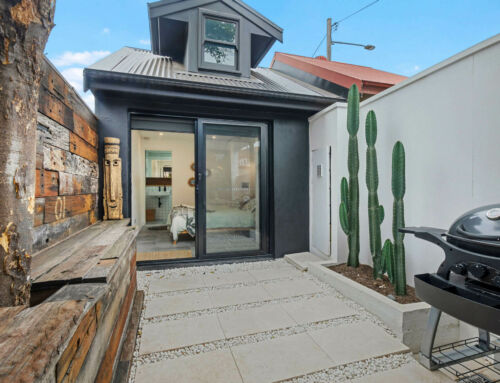
Are you at risk of Underinsurance?
Underinsurance and what it means for you
A surge in construction costs during the COVID-19 pandemic has put property owners at risk of underinsurance. MCG Quantity Surveyors Director, Marty Sandler estimates the cost of building an average home in capital cities has risen more than 10% in the last 6 months, translating to an increase of $48,5000 based on a median construction cost of $485,000.
Many properties in inner-city suburbs have construction costs of more than $1 million, while material and trade shortages are also increasing real costs by about 15% in many cities and towns.
‘Property owners could be left hundreds of thousands out of pocket should an unfortunate event have them calling their insurance provider’ he said, ‘and unfortunately most will only discover they are woefully underinsured when it’s too late.’
The average construction program has increased by as much as 16 weeks due to material and trade shortages, and cost increases will worsen an existing underinsurance problem for property investors and home owners.
Additional outlays such as professional fees, council charges and emergency accommodation, all add to the end amount that needs to be covered. Building sector stimulus programs, natural catastrophes and supply chain issues affected by COVID-19 have contributed to shortages of materials and trades.
What does underinsurance mean?
Underinsurance occurs when the sum insured on your insurance policy – that’s the maximum amount an insurer will pay out if you make a claim – isn’t enough to cover the full cost of rebuilding, repairing or replacing your home and its contents or your investment property.
To ensure you obtain maximum protection from an insurance policy you need to carefully check your sums insured reflect the true and accurate replacement costs of your assets. Generally speaking, the higher the sum insured, the higher the premium and this can be a deterrent for many people to put forward the actual sum insured when taking out a policy.
Many insurance policies include an ‘Average’ or ‘Co-Insurance’ clause (also known as the ‘Underinsurance’ clause which means if you insure for less than the full value of the property, a claim can be reduced in proportion to the amount of the underinsurance.
How you may be at risk
It can be hard to know whether you’re underinsured — many homeowners don’t know the true value of their home. Here are some ways you can wind up underinsured:
- Miscalculating the value of your home and contents.
- Not accounting for things like the cost of removing debris after an incident.
- Lowering your premiums without careful consideration or failing to keep up with market increases
- Increased repair costs due to inflation.
- Spikes in repair costs thanks to materials increasing in price or high demand for construction services after a major event.
How to avoid underinsurance
1. Check your policy and location
Not all insurance policies are the same. While most policies come with cover for natural disasters, its a good idea to take out additional cover if your property is located in bushfire, flood or cyclone zones for peace of mind should a natural disaster strike. Check the specifics and the fine print to see what you’re covered for and read the Product Disclosure Statement (PDS) so you know to what extent your policy would cover these events- in particular, watch out for exclusions, caps or limits. Ask your insurance broker to explain your cover, ask questions and make sure you understand what your policy does and does not cover you for.
2. Review and update your policy regularly
Check your sums insured carefully at review time. Many factors could increase the value of your property, whether its renovations or your suburb growing more popular over time. Your home may have increased in value or you may have done some renovations and need to adjust your sum insured, especially if its been a while since you purchased your policy. If you do anything to your home that could affect the sum insured you need to let your insurer know. Spending more on premiums now might feel like a pain but it will be worth it to avoid getting stuck with hefty out of pocket costs at claim time. Taking half an hour out of your day to discuss your policy with your insurance broker could save you time and money if you need to make a claim. There’s nothing worse than realising your sum insured isn’t enough to cover your cost of replacement.
3. Use calculators or professionals
Remember, the price you paid for something isn’t the same as the cost of replacing it. Try using the Home Building Calculator on our website to help you estimate your sum insured. Don’t forget this calculator is an estimate only and doesn’t take into account amounts for demolition, debris removal, cost escalations and professional fees. Speaking to a licensed builder or professional can also give you a more accurate idea of replacement costs after a major insurance event.
Your home or investment property is likely to be the most valuable asset you’ll ever own and the most important asset to properly insure. For more information about these clauses and underinsurance, speak to one of our insurance experts today.
Need an insurance quote?
For professional advice and to request an insurance quote, click on the ‘Request a Quote’ link here to provide us with your details and one of our qualified & experienced insurance brokers will contact you as soon as possible.
Alternatively, contact us today on (07) 5482 7485 to speak to an insurance expert.
https://www.insurancenews.com.au/daily/building-costs-surge-boosts-underinsurance-risks


